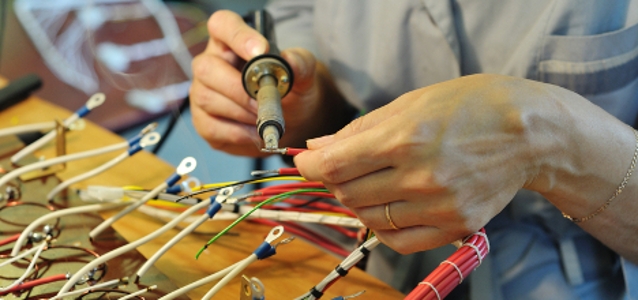
© maria simonova dreamstime.com
Business |
BASTION - European research programme is launched
European Union’s 7th Framework Programme has launched a collaborative research project BASTION to tackle aging and escaping faults in future nanoelectronics manufacturing technologies.
The project’s international consortium includes two high-techcompanies Aster Technologies and Testonica Lab, five European universities Politecnico di Torino, University of Twente, University of Lund, Tallinn University of Technology and High School Hamm-Lippstadt and the chip provider Infineon Technologies.
BASTION - Board and SoC Test Instrumentation for Ageing and No Failure Found - with a budget of 4.65M€ encompasses a period of 3 years and is being coordinated by Dr. Artur Jutman from Testonica Lab.
It is widely acknowledged that due to the shrinking feature size of semiconductor technologies we need to pay attention to the reliability of electronic products. The International Technology Roadmap for Semiconductors lists ageing in semiconductor devices as one of the most difficult challenges concerning reliability. Being almost unnoticed in today’s technologies, ageing is expected to manifest itself clearly in the highly miniaturized manufacturing processes towards the end of the current decade, unless measures will be taken to overcome the challenge.Another hard issue is product malfunctions that are difficult, or impossible, to reproduce referred to as No Failure Found (NFF).
The BASTION consortium partners will unite their forces to contend the ageing and NFF issues. The coordinator of the project, Testonica Lab, is a world-wide pioneer and a technology leader in embedded synthetic instrumentation for electronics test. Aster Technologies is the leading supplier in board-level testability analysis tools, capitalizing on proven expertise in board testability and strong customer relations. Infineon Technologies offers semiconductor and system solutions and is a major chip supplier to the automotive industry.
Testonica, Aster and Infineon are supported by five research institutions from Italy, the Netherlands, Sweden, Germany and Estonia.All the academic institutions involved have a high level of expertise and research excellence in the field of test and reliability of nanoelectronic systems.
The project will investigate currently unknown defects, uncertain fault coverage and unclassified field returns. A new defect universe for emerging semiconductor technologies will be assembled and faults will be classified into comprehensive classes. BASTION will study the mechanisms of ageing and will improve the longevity of electronic products. A combination of embedded instrumentation, reliability networks and functional testing will be applied to develop an infrastructure for fast error detection and diagnosis.
The goals of BASTION are ambitious. Among other targets the project aims at a considerable lifetime extension of emerging nanoelectronic products as well as at reducing test escapes, and therefore the impact of NFF, at least by the factor of two.



